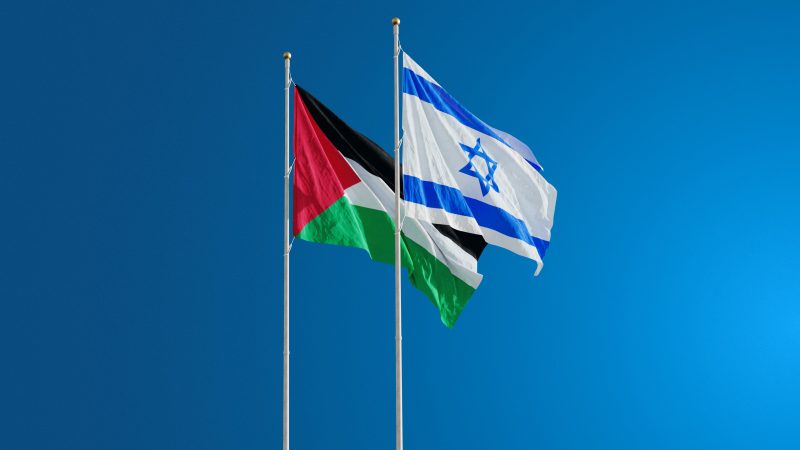
This year saw the 30th anniversary of the election victory that brought Yitzhak Rabin to power in Israel. Three short years later, after a rare period of hope that the tragic conflict between Israel and the Palestinians might at last be drawing to a close, Rabin was brutally murdered in Tel Aviv after addressing a huge rally for peace.
While his Labor successors, Shimon Peres and Ehud Barak, attempted to build upon Rabin’s legacy, the last three decades have been deeply disappointing for all of us who want to see a two-state solution. Moreover, the continuing bloodshed in Israel and Palestine is a stark reminder of the tragic consequences of the failure to institute a credible peace process. But Steps to a Two State Solution, a new publication from Labour Friends of Israel, is focused on the future, not the past – and it is firmly rooted in our support for a negotiated two-state solution.
A two-state solution remains the only means by which the Palestinian people’s inalienable right to self-determination and national sovereignty can be realised. It is also, as the leader of the Israeli Labor Party Merav Michaeli has suggested, the only way to guarantee Israel’s security and preserve its identity as a Jewish and democratic state. A lack of political leadership on both sides – and a failure by the international community to support peace makers in Israel and Palestine – has led to a prolonged hiatus in the peace process. Rather than despair, we should seek new and positive ways to restart the search for peace.
Our new publication shows how this might be achieved – proposing 30 concrete, realistic steps focused on the political, economic and civic society dimensions of the conflict, which would advance the prospects of a two-state solution. Taken together, these steps seek to rebuild shattered confidence and trust on both sides and provide tangible evidence to the Israeli and Palestinian public of the benefits of a different and better future. They seek to ease the plight, and expand the rights and freedoms, of the Palestinian people while preserving the security of the Israeli people.
This is not a ‘pick-and-mix’ proposal, nor does it seek to attribute blame to either side. It makes demands of Israelis, Palestinians and the international community. At the same time, it doesn’t ignore the knotty issues that many regard as at the heart of the conflict and that are legitimately seen as barriers to the realisation of a two-state solution: the threat of terrorism and those states that promote and sponsor it; the division between Gaza and the West Bank and the appalling humanitarian crisis in the coastal enclave; the pursuit of settlement building; the status of Jerusalem; and policies that incite hate, violence and terrorism.
We should not allow these challenges to deter us. As Shimon Peres once suggested: “Making peace is not a simple endeavour. It is a constant struggle. But its complexity should not overshadow its purpose.” The remarkable ‘warm peace’ we have seen developing between Israel and its partners in the Abraham Accords over the past two years should remind us that old enemies can – with support and encouragement – turn a corner and become firm friends.
The Abraham Accords also underlines the powerful, but too often forgotten, role that civic society has to play in peacemaking. That is why one of the key steps contained in this publication is the establishment of an International Fund for Israeli-Palestinian Peace. Modelled on the International Fund for Ireland, it would invest in civic society projects which bring Israelis and Palestinian together and create new constituencies for peace. As the International Fund for Ireland did so successfully in the decade prior to the Good Friday Agreement, it would open up new political space to fashion an agreement and provide the popular support necessary to sustain it.
While this work has historically been woefully underfunded in Israel and Palestine, that is beginning to change, with the US Congress in late 2020 passing a five-year, $250m investment in peace-building work. Sadly, the UK government has remained detached from international discussions around the fund and has axed all UK funding for cross-border, people-to-people projects. Labour has adopted a different approach, with Keir Starmer pledging that, in government, we will work with our European, American and Middle Eastern allies to make the fund a reality.
As we mark Yitzhak Rabin’s death in November, let’s honour his memory by renewing our faith in the possibility of progress and embarking once again on steps towards a two-state solution.




More from LabourList
‘Labour’s quiet quest for democratic renewal’
‘Labour promised to make work pay. Now it must deliver for young people’
‘Council Tax shouldn’t punish those who have the least or those we owe the most’